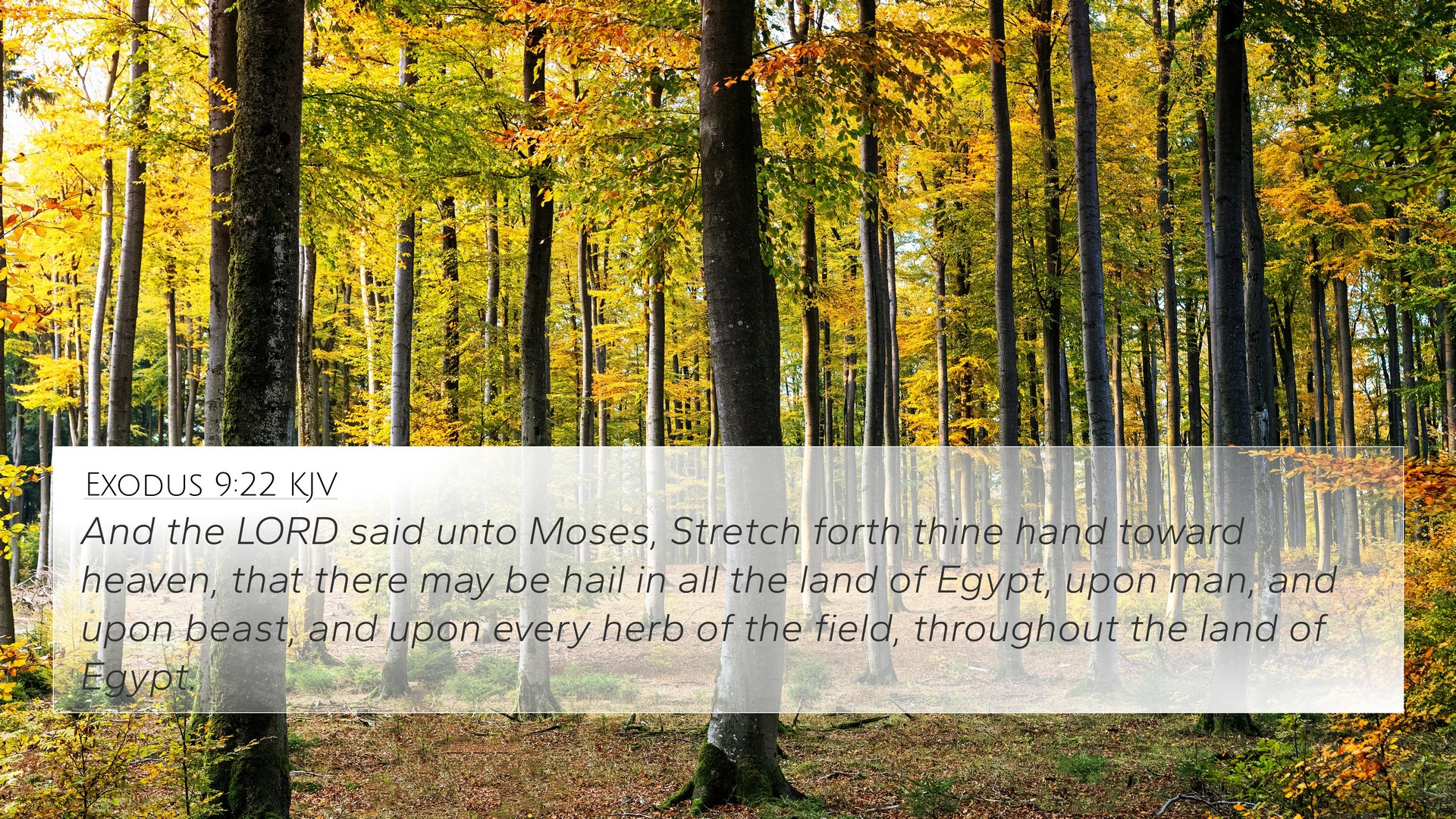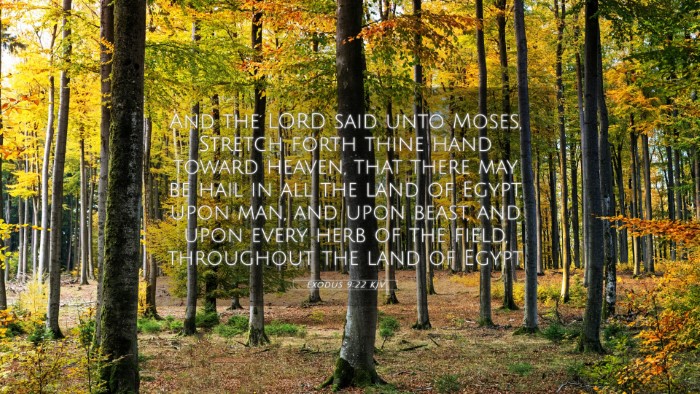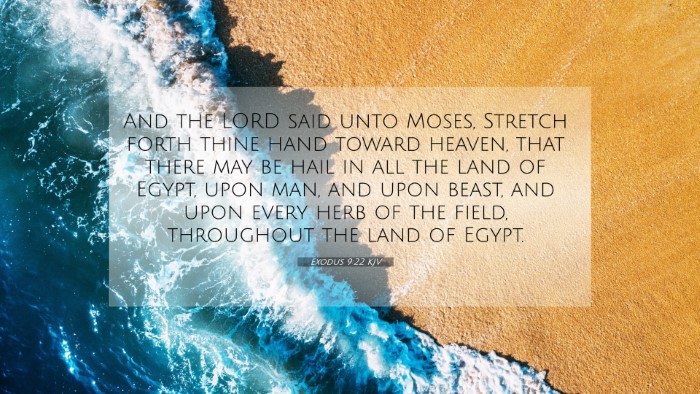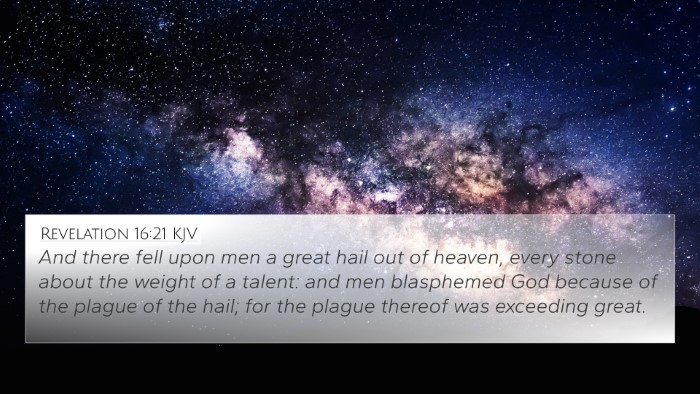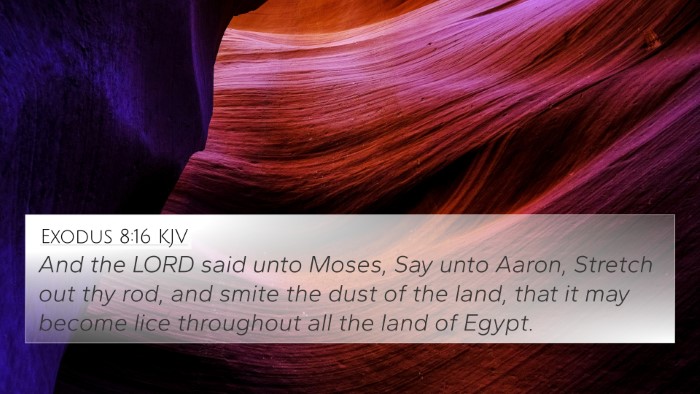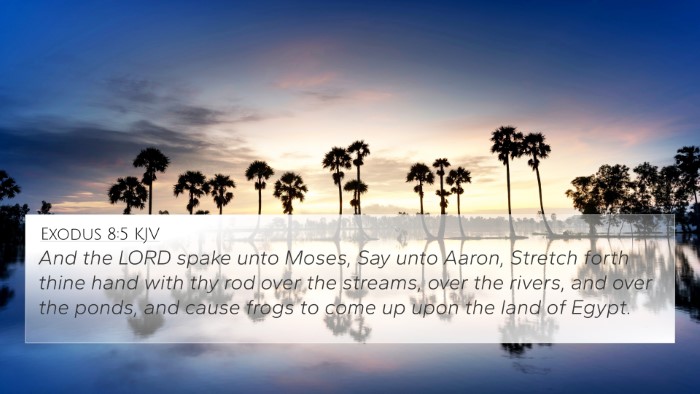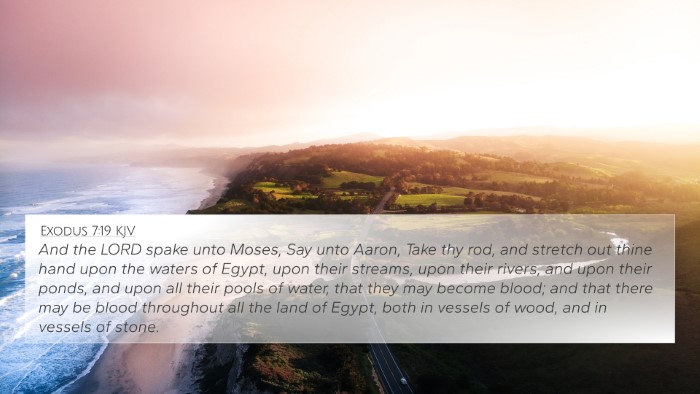Understanding Exodus 9:22
Exodus 9:22 states: "And the LORD said unto Moses, Stretch forth thine hand toward heaven, that there may be hail in all the land of Egypt, upon man, and upon beast, and upon every herb of the field, throughout the land of Egypt." This verse marks a critical moment during the plagues of Egypt, illustrating God's power and the severity of His judgment against Pharaoh and the Egyptians for their refusal to release the Israelites.
Summary of Exodus 9:22
The command to stretch forth Moses' hand towards heaven signifies not only the authority given to him by God but also represents a visible manifestation of God's wrath through the upcoming hailstorm. This plague is distinct, affecting humans, livestock, and the agricultural resources of Egypt, symbolizing total devastation upon a land that had already suffered from previous plagues.
Commentary Insights
- Matthew Henry: Henry emphasizes that God's judgments are a means of demonstrating His sovereignty. He notes the lesson that disobeying God can lead to catastrophic consequences, as seen through this plague that serves both as punishment and a warning.
- Albert Barnes: Barnes points out that the hail was a direct challenge to the false gods of Egypt, particularly those associated with agriculture and weather. The plague demonstrated that the God of Israel is sovereign over natural elements, contrasting with the impotence of Egyptian deities.
- Adam Clarke: Clarke provides a detailed analysis of the implications of hail as a destructive force. He elaborates on how this plague was both a divine demonstration and a mechanism for liberation, showcasing God's intent to free His people from bondage.
Connections to Other Bible Verses
Exodus 9:22 can be enriched through cross-references that highlight similar themes of divine judgment and the importance of obedience to God. Here are some related verses:
- Exodus 7:19-21: The first signs of God's power through the plagues.
- Exodus 8:16-19: The plague of gnats and God's authority over creation.
- Exodus 10:1-2: God hardening Pharaoh's heart to demonstrate His power.
- Revelation 16:21: A parallel of divine judgment through intense hail during the end times.
- Job 38:22-23: God's questioning of Job highlights His control over weather phenomena.
- Psalms 105:32-33: A reflection on God's judgment upon Egypt through certain plagues.
- Jeremiah 51:16: A declaration of God’s power over destruction in Babylon.
Thematic Connections
Through the act of sending hail, God illustrates major themes such as:
- Divine Sovereignty: God’s control over natural elements shows His supreme authority.
- Judgment: The plagues serve as a reminder of consequence for disobedience.
- Redemption: Despite the judgment, there is a clear plan for eventual deliverance of the Israelites.
- Faith and Obedience: Moses' actions of raising his hands represent reliance on God for deliverance.
Exploring Cross-Referencing Tools
To fully grasp the depth of Exodus 9:22, using resources for Bible cross-referencing can be invaluable. Tools such as Bible concordance, cross-reference guides, and Bible study methods can support a deeper understanding.
How to Use Cross-References
Utilizing cross-references helps identify parallels and thematic connections across scriptures. By examining how different verses inform each other, one can attain a richer understanding of biblical teachings.
Conclusion
Exodus 9:22 serves as a reminder of God’s omnipotence and the seriousness of disobedience. Through comparative Bible verse analysis and an exploration of thematic connections, readers can appreciate the coherent narrative and divine message throughout scripture.
By engaging in inter-Biblical dialogue through links between Old and New Testament, individuals can deepen their faith and understanding of God's interactions with humanity throughout history.
